Most Want Abortion Pill To Remain Available — CBS News Poll
A big majority of Americans want to see the abortion pill mifepristone remain available. Even some who are more generally opposed to abortion hold this view.Monday, April 17th 2023, 6:47 am
A big majority of Americans want to see the abortion pill mifepristone remain available. Even some who are more generally opposed to abortion hold this view.
On a broader level, American women feel access to reproductive health care is getting harder today rather than easier, by about four to one.
There's a red-blue state divide on the outlook for abortion rights: most who live in "red" states think abortion access is going to become more restricted for them.
But people see national agendas at work from the parties, nonetheless: half of Americans, and especially those who want abortion to be legal, think the Republican Party is trying to ban it nationwide, rather than let states decide. And most think Democrats are trying to make abortion available nationwide.
Reaction in wake of initial federal court ruling
After a Texas judge halted the Food and Drug Administration's approval of the abortion pill mifepristone, a two-thirds majority want to see the abortion pill mifepristone remain available in states where abortion is legal — a view that generally squares with the national majority who for years have said they'd prefer abortion remain legal in at least some instances.
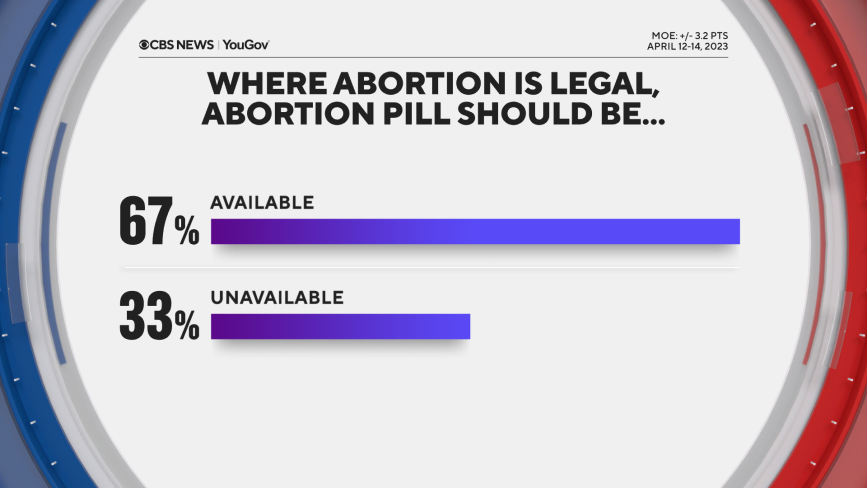
But even among those who'd see abortion illegal in most cases, there's still a substantial number — about four in ten — who'd prefer mifepristone remain legal.
And these views are not purely partisan: almost half of Republicans think the medication ought to be available.
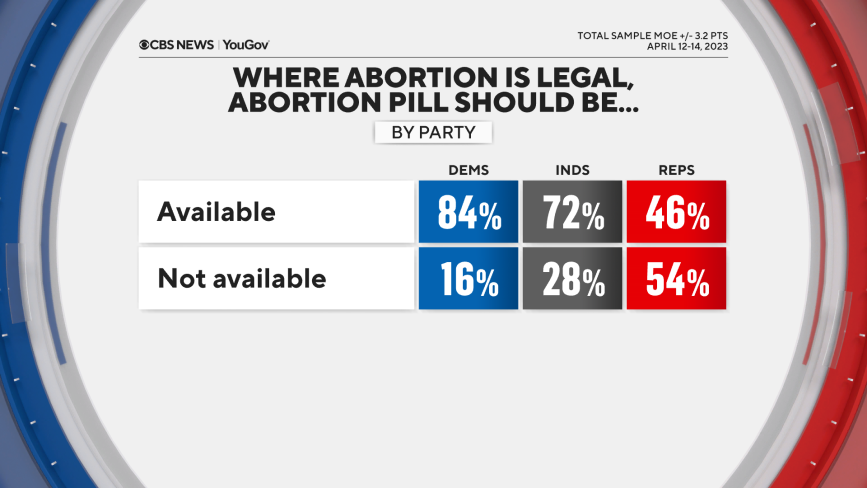
What's next?
So what should the Biden administration do if courts rule against it on the abortion pill?
Overall, views are split. And it really depends whether people are for or against the legality of abortion in general.
Those who want abortion to be mostly legal say the administration should tell the FDA to ignore the ruling, and they say so by more than two to one.
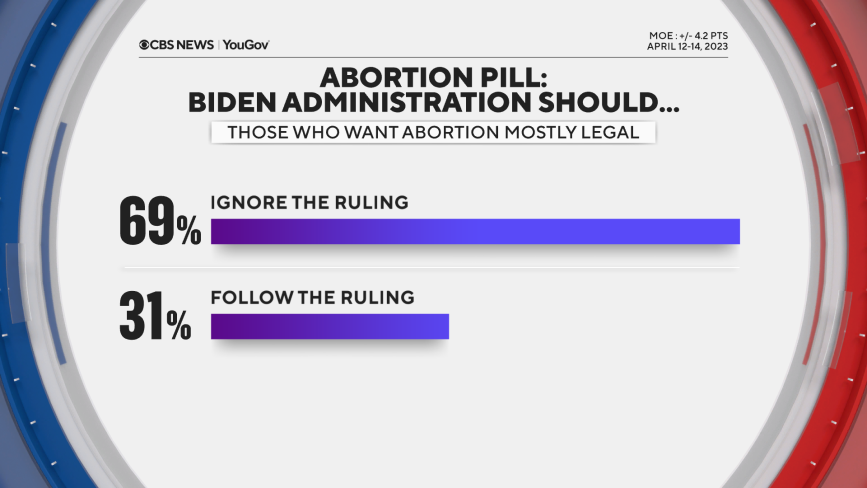
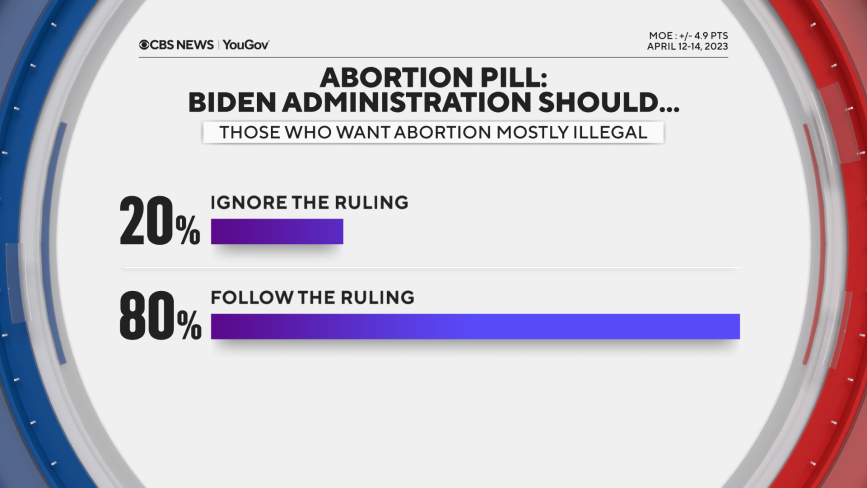
Some of the outlook on what would happen if there were to be a nationwide abortion pill ban is tied to what people want in the first place. People who are most opposed to abortion — those who want it illegal in all cases — are also the most likely to believe stopping use of mifepristone will stop a lot of abortions. Half of those who want abortion to be legal in all cases don't think it will stop any abortions.
With the Dobbs decision having sent abortion back to the states, Americans who live in "red" Republican-led states have different outlooks than those who live in "blue" Democratic-led states.*
Most who live in red states think abortion rights are going to become more restricted for them. Far fewer of those in blue states think it will be for them.
It's especially Democrats and independents in red states, most of whom want abortion to be legal, who think abortion rights will instead be more restricted.
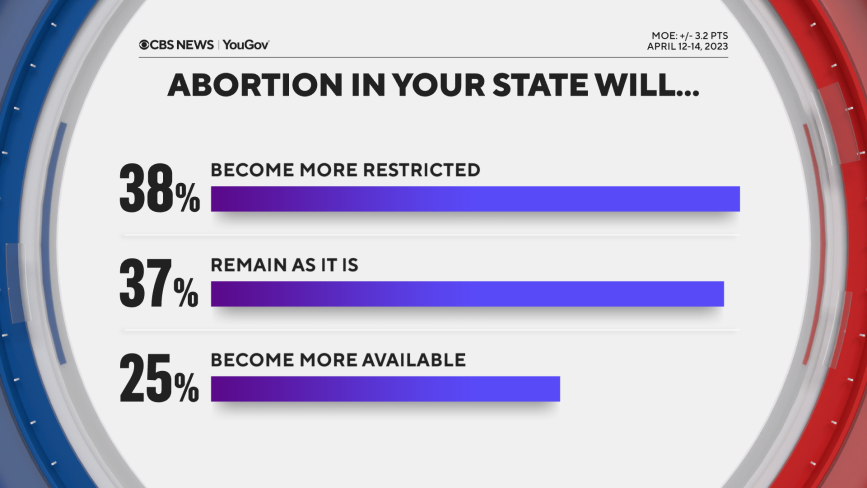
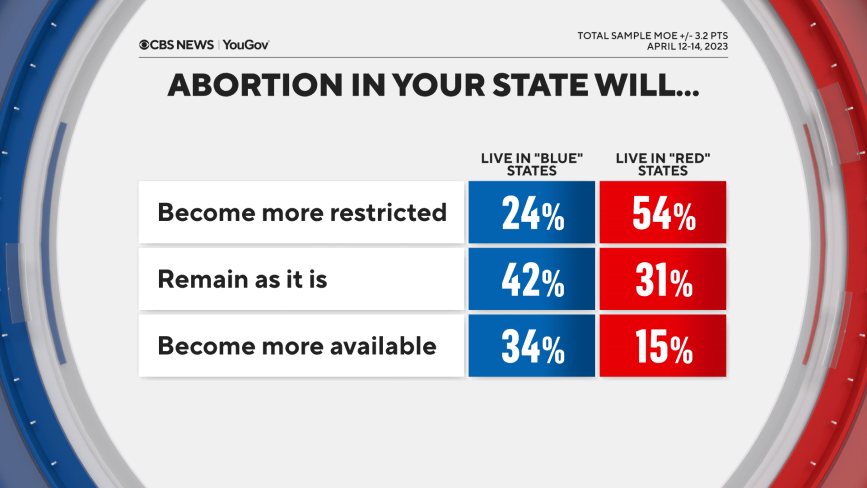
If women do travel out of state for an abortion, just a quarter of Americans would criminally punish that action.
It's only among the one in 10 who think abortion ought to be illegal in all cases that such a view about criminality finds majority approval.
What are the parties trying to do?
Americans feel the parties have national agendas here, despite the fact that abortion access is now a state-level decision.
Republican leaders generally applauded sending the abortion issue back to states, but half of Americans think the Republican Party is trying to ban abortion nationwide rather than let states decide. That view is driven overwhelmingly by people who want abortion mostly legal, including independent women and Democrats.
People who want abortion mostly illegal say the Republican Party is trying to leave it up to the states by two to one.
Meanwhile, most Americans think that the Democratic Party is trying to make abortion available nationwide, in all states. Most of those who want abortion legal and those who want it illegal are in agreement on this point.
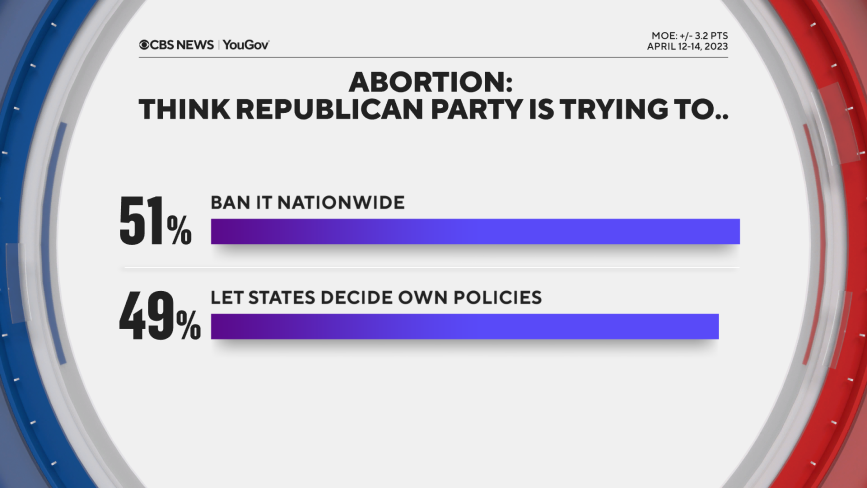
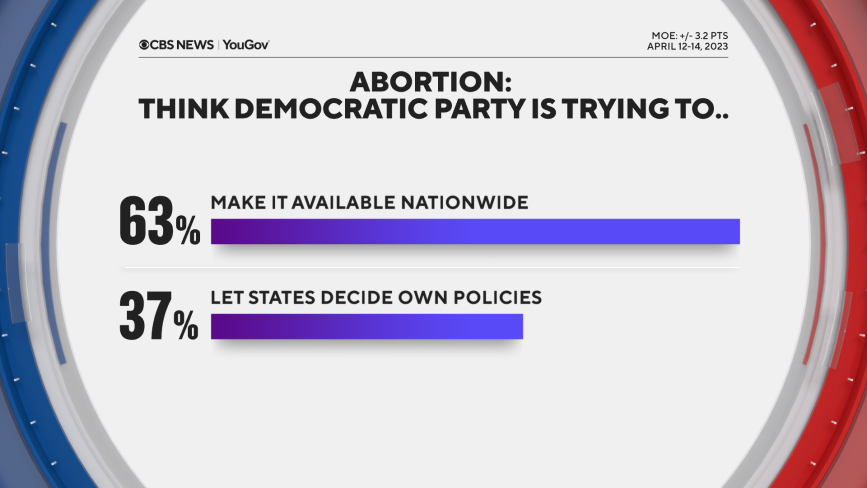
For context on a wider level, America's women feel access to reproductive health care is getting harder today rather than easier, by about four to one.
That's especially true for women who want abortion legal.
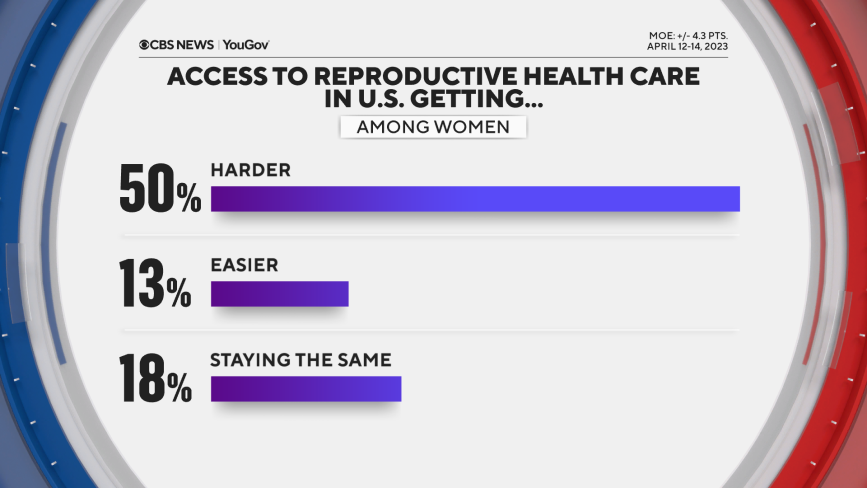
As an issue, abortion is important to most Americans, though it is not called "very important" at the same rate as things like the economy or inflation. Similar to what we saw in the 2022 midterm elections, most who feel abortion should generally be legal today place greater importance on the issue than those who feel abortion should generally be illegal.
This CBS News/YouGov survey was conducted with a nationally representative sample of 2,065 U.S. adult residents interviewed between April 12-14, 2023. The sample was weighted according to gender, age, race, and education based on the U.S. Census American Community Survey and Current Population Survey, as well as the 2020 presidential vote. The margin of error is ±3.2 points.
*For purposes of this analysis, "red" and "blue" states are defined by the political party of the state's governor. Results also hold when using state presidential winners.
More Like This
April 17th, 2023
November 3rd, 2023
October 19th, 2023
June 15th, 2023
Top Headlines
December 14th, 2024
December 14th, 2024
December 14th, 2024
December 14th, 2024








